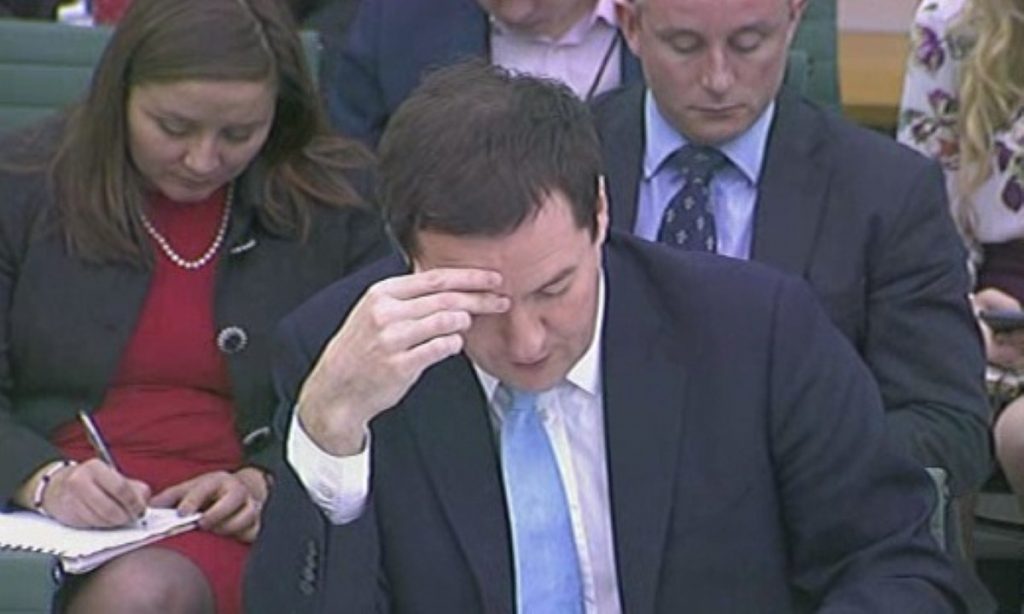Osborne won’t rule out lowering benefit cap
George Osborne has refused to rule out lowering the benefit cap in the next parliament.
The chancellor predicted the controversial decision to cap payouts at £26,000 per household would "continue to be a subject of fierce debate" during an evidence session on the autumn statement with MPs.
He was asked by Tory backbencher Brooks Newmark whether the coalition would consider cutting back on the level of the benefit cap because it equates to a pre-tax income of approximately £35,000.
Newmark repeatedly pressed Osborne on whether he would reduce the cap so that it was roughly comparable to the average earnings of £26,000 before tax is taken into account.
Osborne replied: "I think it has introduced an element of fairness into the system. The level of the cap has been set in a fair way. Of course it's open to debate and for future governments to set the level of a cap."
Roughly 58,000 households in Britain receive enough benefits to be hit by the cap as it currently stands, according to the Department for Work and Pensions. Around 220,000 children will be affected.
Osborne's main focus in the autumn statement was in conquering the growing proportion of public spending dominated by welfare payments.
This year's Budget saw an announcement that the Treasury intends to cap overall welfare spending.
But last week's autumn statement raised question-marks about the effectiveness of the strategy, when it was confirmed the basic state pension would not be included.
According to the Institute for Fiscal Studies, as much as £12 billion of cuts to welfare spending will have to be introduced on top of the reductions already made if government departments are to avoid more cuts of their own.
"I agree with the analysis behind that number, that many billions of pounds of welfare savings are going to be required if we are to avoid cutting government budgets even further," Osborne added.
"Anyone who wants to be honest with the British public about dealing with the deficit… should also be honest about the savings that are required."
The chancellor faced hostile questioning from Labour MPs over his approach to austerity.
George Mudie said the deficit reduction strategy had "stalled" for the last three years around the £110 billion mark.
Andy Love forced Osborne to concede that living standards had fallen for the last five years.
And John Mann lambasted the chancellor over increases in petrol costs over the last five years.
"You're yearning for a Chinese-style government, but you're here to answer questions," Mann told Osborne.





-01.png)